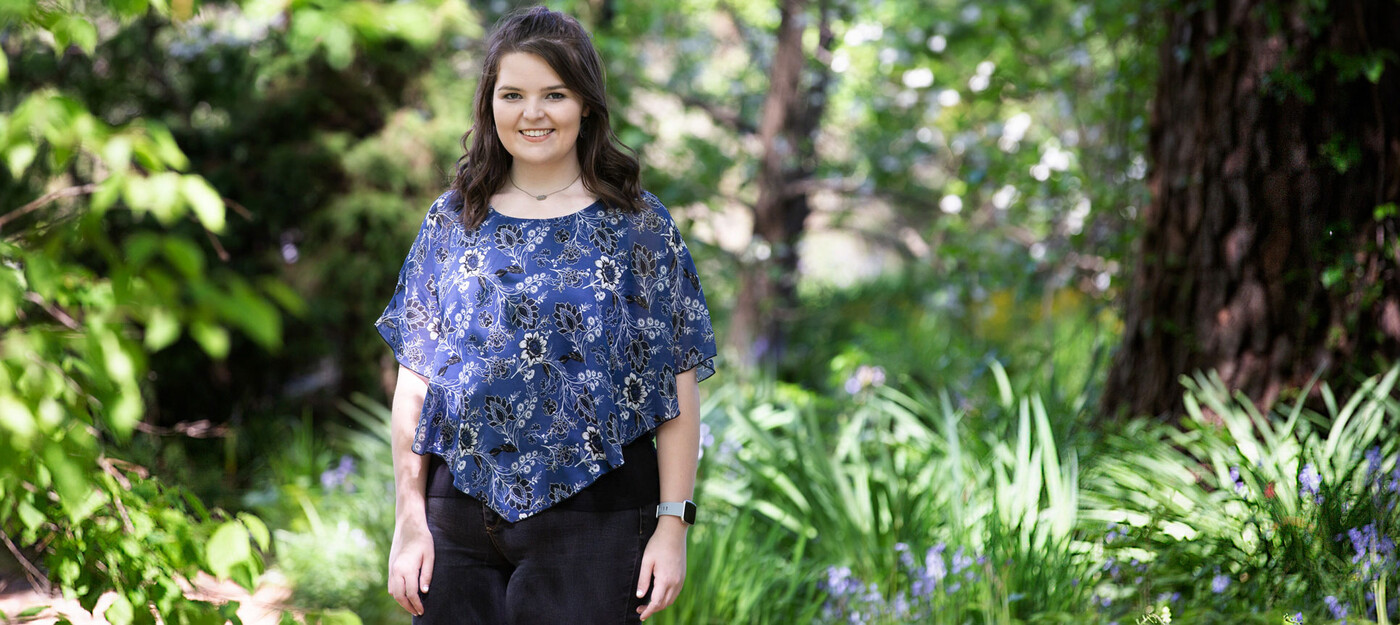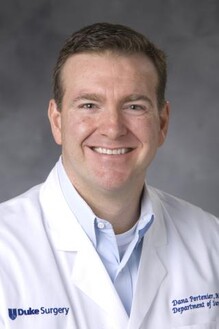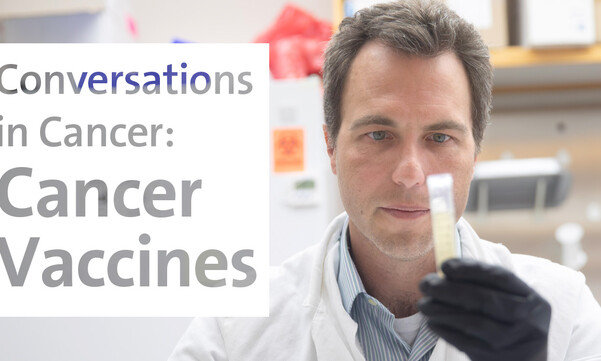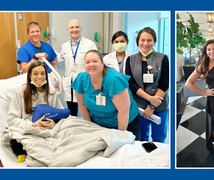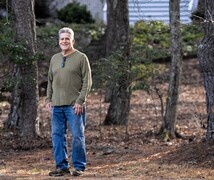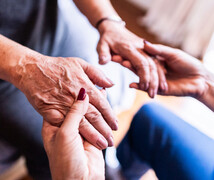As a child, Faith Newsome of Sanford, NC, struggled with feeling different from her peers because of her weight. By the time she was 15, she weighed 273 pounds and was pre-diabetic. She had
Choosing Weight Loss Surgery as a Teenager
Newsome distinctly remembers being pulled aside during a health exam in kindergarten and being told her weight was putting her health at risk. “It was embarrassing because I was aware of my size from a very young age.”
Her parents had gone through weight loss surgery as adults and looked into whether weight loss surgery was an option for teens. Her mother soon learned Duke was North Carolina’s only accredited weight loss surgery program for adolescents. When Newsome was 15, her mom told her the choice to go through with weight loss surgery was hers alone.
Shortly after that conversation, Newsome said, “I remember sitting in a seat in the gym and being so uncomfortable and so aware of how much space my body was taking up. I looked at my mom and said, ‘Call Duke. I want to start the process.’”
Achieving Goals
Newsome enrolled in the Duke Children’s Healthy Lifestyle Program and spent the next year working with a pediatric obesity specialist, a dietitian, and a licensed clinical social worker who taught her how to change her eating habits and incorporate exercise into her life. “I really feel like they built a relationship with me,” Newsome said. “They were there to support me and help me succeed.”
Adolescents must be enrolled in the program for at least six months before being considered for weight loss surgery. Newsome also had to prove she was responsible enough to take the vitamins she would need for the rest of her life. When the time was right, the Healthy Lifestyles specialists partnered with Duke’s bariatric team. In June 2015, Newsome had gastric bypass.
A mere two months later, Newsome achieved one of her goals; she played on her school’s tennis team. In the coming months, she achieved another important goal -- prom dress shopping with her friends. “When I was obese, I bought all my clothes online,” Newsome said. “I finally got to have the experience of shopping with my friends, trying on dresses, and leaving with the one I loved.”
Within 12 months after her surgery, she had lost just over 100 pounds.
Facing Reality as a Student
However, being a teenager who had weight loss surgery wasn’t easy. In high school, she needed special permission from her teachers to drink protein shakes and eat snacks in class. It’s always been hard for Newsome to watch her friends eat whatever they want and not think about it. Now, as a young adult, Newsome is still challenged by a desire to eat when her stress levels are high. “My relationship with food is complicated. I know how to eat and how to exercise, but there are some emotional issues and how I interact with food that I still have to work on.”
Going to college brought a new set of challenges, as it came with lifestyle changes that resulted in some weight gain. Now that she’s adopted a routine, Newsome is doing well in her studies and plans to pursue a PhD related to obesity. She currently weighs about 190, stays active at the gym, and runs 5K races. “Obesity is a journey, and I still deal with it every day,” she said.
Helping Other Teens with Obesity
Through it all, Newsome has been honest with her friends about her weight loss journey and her ongoing struggles.
“When I came to college, I made the decision to tell my story. I didn’t want people to see me eat small meals and think there was something wrong. I also wanted to be open because I know adolescent weight loss surgery isn’t the norm yet. I wanted to spread the word that I was a younger bariatric patient and it worked for me. There’s a lot of discussion about whether bariatric surgery is a useful tool for teens or if they should wait 'til they are older. I wanted to be open about my experience and contribute to that debate.”
Newsome has contributed in a big way. She founded a support group called O.C.E.A.N.S. -- it stands for Outreach, Community Engagement, Advocacy, and Nondiscriminatory Support. While not affiliated with Duke, it arose from her experience working as an intern in the Duke Healthy Lifestyles clinic and is open to teens considering bariatric surgery. The group gives teens a place to talk about their struggles and discuss the challenges they face as they treat their obesity. It offers themed social activities that focus on topics like physical activity and social relationships.
Whenever Newsome talks to young people who are considering weight loss surgery, she advises them to know their options and create strong relationships with their doctors.
“It takes comprehensive treatment to deal with obesity effectively,” Newsome said. “Weight loss surgery isn’t for everyone, but there are young people who could be helped tremendously.”

